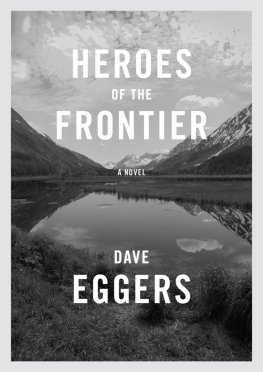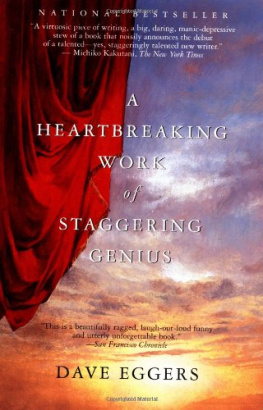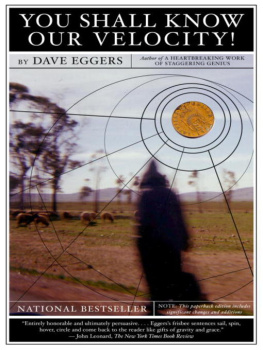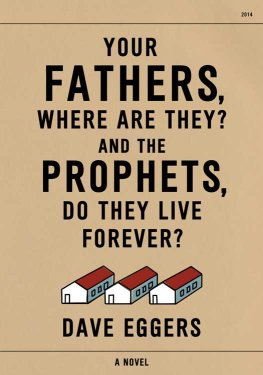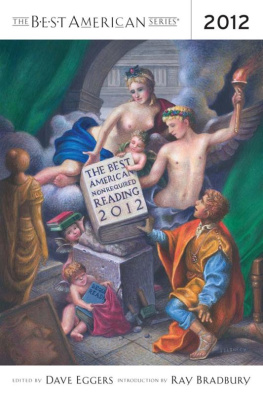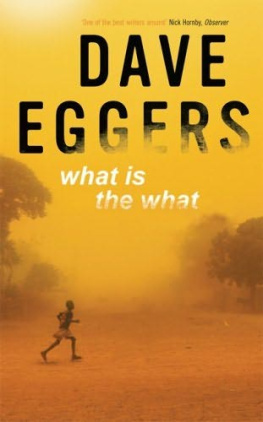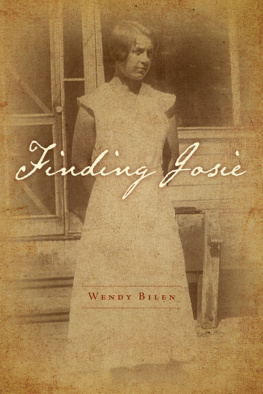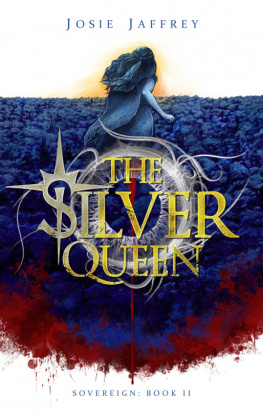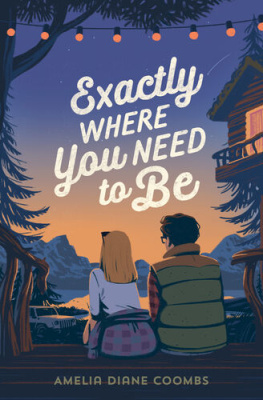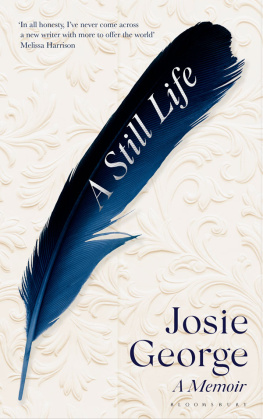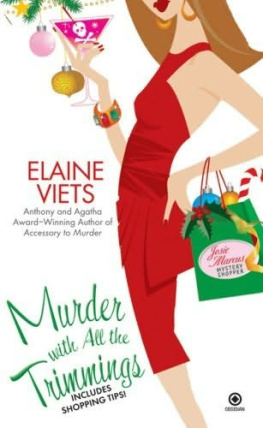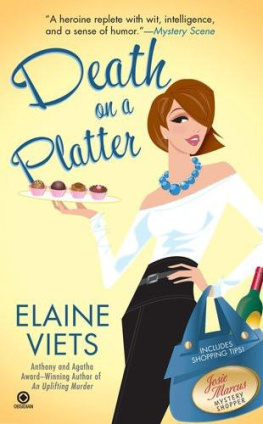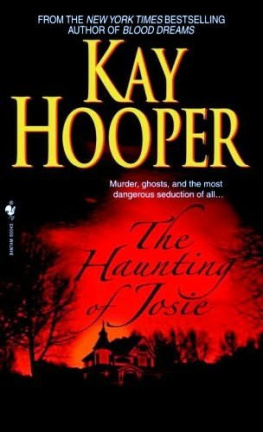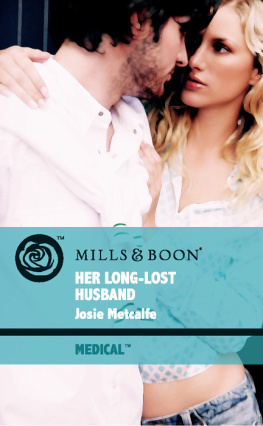Dave Eggers
Heroes of the Frontier
THERE IS PROUD HAPPINESS, happiness born of doing good work in the light of day, years of worthwhile labor, and afterward being tired, and content, and surrounded by family and friends, bathed in satisfaction and ready for a deserved rest sleep or death, it would not matter.
Then there is the happiness of ones personal slum. The happiness of being alone, and tipsy on red wine, in the passenger seat of an ancient recreational vehicle parked somewhere in Alaskas deep south, staring into a scribble of black trees, afraid to go to sleep for fear that at any moment someone will get past the toy lock on the RV door and murder you and your two small children sleeping above.
Josie squinted into the low light of a long summer evening at a rest stop in southern Alaska. She was happy this night, with her pinot, in this RV in the dark, surrounded by unknown woods, and became less afraid with every new sip from her yellow plastic cup. She was content, though she knew this was a fleeting and artificial contentment, she knew this was all wrong she should not be in Alaska, not like this. She had been a dentist and was no longer a dentist. The father of her children, an invertebrate, a loose-boweled man named Carl, a man who had told Josie marriage-by-documentation was a sham, the paper superfluous and reductive, had, eighteen months after hed moved out, found a different woman to marry him. Hed met and now was, improbably, impossibly, marrying some other person, a person from Florida. It was happening in September, and Josie was fully justified in leaving, in disappearing until it was all over. Carl had no idea she had taken the children out of Ohio. Almost out of North America. And he could not know. And what could better grant her invisibility than this, a rolling home, no fixed address, a white RV in a state with a million other wayward travelers, all of them in white RVs? No one could ever find her. Shed contemplated leaving the country altogether, but Ana didnt have a passport and Carl was needed to get one, so that option was out. Alaska was at once the same country but another country, was almost Russia, was almost oblivion, and if Josie left her phone and used only cash shed brought three thousand dollars in the kind of velvet bag meant to hold gold coins or magic beans she was untraceable, untrackable. And shed been a Girl Scout. She could tie a knot, gut a fish, start a fire. Alaska did not daunt her.
She and the kids had landed in Anchorage earlier that day, a grey day without promise or beauty, but the moment shed stepped off the plane she found herself inspired. Okay guys! shed said to her exhausted, hungry children. They had never expressed any interest in Alaska, and now here they were. Here we are! shed said, and shed done a celebratory little march. Neither child smiled.
Shed piled them into this rented RV and had driven off, no plan in mind. The manufacturers called the vehicle the Chateau, but that was thirty years ago, and now it was broken-down and dangerous to its passengers and all who shared the highway with it. But after a day on the road, her kids were fine. They were strange. There was Paul, eight years old, with the cold caring eyes of an ice priest, a gentle, slow-moving boy who was far more reasonable and kind and wise than his mother. And there was Ana, only five, a constant threat to the social contract. She was a green-eyed animal with a burst of irrationally red hair and a knack for assessing the most breakable object in any room and then breaking it with incredible alacrity.
Josie, hearing the roar of a truck passing through on the nearby highway, poured herself a second cup. This is allowed, she told herself, and closed her eyes.
But where was the Alaska of magic and clarity? This place was choked with the haze of a dozen forest fires, spread around the state like a prison break, and it was not majestic, no, not yet. All theyd seen so far was cluttered and tough. Theyd seen seaplanes. Theyd seen hundreds of homes for sale. Theyd seen a roadside ad for a tree farm looking for a buyer. Theyd seen another RV, not unlike theirs, parked on the side of the road, under a high sheer mountain wall. The mother of the family was squatting on the side of the road. Theyd seen lacquered log cabin homes. Theyd seen in a convenience store also made of lacquered logs, a T-shirt that said Dont blame me. I voted for the American.
So where were the heroes? All she knew where she had come from were cowards. No, there was one brave man, and shed helped to get him killed. One courageous man now dead. Everyone took everything and Jeremy was dead. Find me someone bold, she asked the dark trees before her. Find me someone of substance, she demanded of the mountains beyond.
Alaska had been on her mind only a few weeks before shed decided to leave Ohio. She had a stepsister, Sam, up in Homer, a stepsister who was not quite a stepsister, and who she hadnt seen in years but who had held great mystique because she lived in Alaska, and owned her own business, and piloted a boat or ship of some kind, and had raised two daughters largely alone, her husband a fisherman gone for months at a time. To hear Sam tell it he was no prize and his absences no great loss.
Josie had never been to Alaska and outside of Homer had no idea where to go or what to do there. But she wrote to Sam, telling her she was coming, and Sam wrote her back, saying that was fine. Josie took this as a good sign, that her stepsister who she hadnt seen in five years just said fine and did no kind of beseeching or encouraging. Sam was an Alaskan now, and that meant, Josie was sure, a plainspoken and linear existence centered around work and trees and sky, and this kind of disposition was what Josie craved in others and herself. She wanted no more of the useless drama of life. If theatrics were necessary, fine. If a human were ascending a mountain, and on that ascent there were storms and avalanches and bolts of lightning from angry skies, then she could accept drama, participate in drama. But suburban drama was so tiresome, so absurd on its face, that she could no longer be around anyone who thought it real or worthwhile.
So they flew up and found their baggage and then found Stan. He owned the recreational vehicle she had rented the Chateau and he was standing outside baggage claim, holding a sign with Josies name on it. He was as she imagined him a retired man in his seventies, hearty and with a way of swinging his hands, as if they were heavy things, bunches of bananas, he was delivering. They loaded their luggage into the vehicle and were off. Josie turned around to look at her children. They looked tired and unclean. Cool, huh guys? she asked, indicating the Chateaus environs, a patchwork of plaids and wood veneers. Stan was white-haired and wore ironed jeans and clean powder-blue sneakers. Josie sat in the front seat, the children in a banquette in back, as they drove the ten miles from the airport to Stans house, where the paperwork for the Chateau would be done. Ana was soon asleep against the horizontal blinds. Paul smiled wanly and closed his ice-priest eyes. Stan adjusted his rearview mirror to see them, and seeing them through Stans eyes, Josie knew they did not look like her children. They were mismatched to her and to each other. Josies hair was black, Pauls khaki, Anas red. Josies eyes were brown and small, Pauls enormous and blue, Anas green and shaped like paisleys.
When they arrived in Stans driveway, he parked the Chateau and the kids were invited to play in the yard. Ana immediately went to a large tree with a hole in the trunk and stuck her hand in. Look, I got a baby! she yelled, holding an invisible baby.
Sorry, Josie said.
Stan nodded gravely, as if Josie had said My child is demented and incurable. He got out the owners manual and went through the functions of the RV with the seriousness of someone explaining the dismantling of a bomb. There was the oven, the speedometer, odometer, bathroom, cleanout, electrical hookup, various levers and cushions and hidden compartments.

